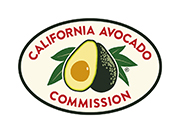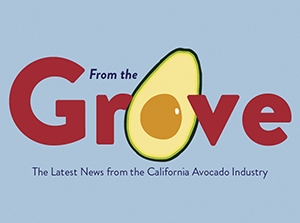OPENING ROADS FOR MICROPROPAGATION OF AVOCADO IN CALIFORNIA
During the last three years, this project developed at The Huntington has focused on the micropropagation of avocado, including clonal rootstocks, cultivars, and wild relatives. The Huntington's approach to clonal micropropagation of avocado primarily focused on rootstocks of interest for the California industry and The Huntington field collection.
Commercial-scale field testing and potential release of five elite advanced rootstocks
The overall goal for this proposal is to continue with the generation and collection of compelling field and horticultural data required to commercially release five of the most promising advanced University of California Riverside rootstocks (PP35, PP40, PP42, PP45, and PP80), which are currently under field evaluation in small regional and large-scale trials throughout California.
Opening Roads for Micropropagation of Avocado in California
The popularity and demand for avocado (Persea americana) have increased tremendously. Like many other clonal crops, a few varieties and rootstocks dominate the avocado market. Nowadays, avocado trees are conquering new farming areas. However, at the same time, they are facing new threats, such as new pests and changing environmental conditions. The search for clonal rootstocks that can better adapt to the biotic and abiotic stress conditions is one of the challenges.
Avocado Plant Improvement Planning Meeting: Taking advantage of what we learned from Avocado Brainstorming
Drs. Arpaia and Smith organized a meeting to discuss the status of avocado genetics and breeding worldwide which was held in Riverside on January 11 – 12, 2012. This meeting was followed by a grower field day at the University of California South Coast Research and Extension Center in Irvine.
Development of avocado rootstock varieties resistant to Phytophthora cinnamomi and salinity by the implementation of molecular breeding approaches for genomic selection
The overall goal of this program is to develop and provide elite rootstock material that is highly tolerant to Phytophthora root rot (PRR) and salinity. To address this goal we have divided the program into specific areas: 1) Screening for PRR tolerant rootstock varieties, 2) Screening for rootstock varieties with high tolerance to salinity and understanding PRR x salinity interactions to select for both PRR and salinity tolerant rootstocks, 3) Field testing, 4) Implementation of molecular-assisted breeding, and 5) outreach, education, and commercial release of elite rootstocks.
Use of Simple Sequence Repeats (SSR) to Determine Incidence and Effectiveness of Self and Cross-pollinated Avocado Fruit in Southern California
SSR technology is a powerful tool to determine the pollen parents of avocado progeny of known maternal genetic background. The four SSR markers we have selected for use to determine pollen parents are powerfully informative for the range of cross pollinizing cultivars available in the selected orchards and, therefore, highly capable of discerning the specific pollen parent of each sampled fruit. The cultivars included in the study are Bacon, Ettinger, Fuerte, Harvest, Hass, Lamb Hass, Marvel, Nobel, SirPrize and Zutano.
- 1 of 3
- Load More


